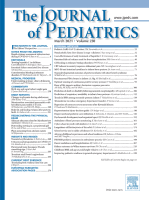
ToxStrategies is pleased to announce that John M. Rogers, Ph.D., has joined our Health Sciences Practice, following a distinguished career with the U.S. EPA. Dr. Rogers brings more than 40 years of experience in the areas of developmental and reproductive toxicology, further strengthening the body of expertise that we offer our clients.
Dr. Rogers’ experience includes evaluating and advising on animal and in vitro toxicology research to support U.S. EPA decision-making. He also brings a wealth of teaching experience at Duke University, the University of North Carolina, North Carolina State University, and the University of Miami. In addition, he has held several positions with the Society of Toxicology, in their Reproductive and Developmental Toxicology Special Section, and the Teratology Society (now the Society for Birth Defects Research and Prevention).
Dr. Rogers has served on the editorial boards of The Journal of Toxicology and Environmental Health, Mutation Research – Reviews and The Journal of Developmental Origins of Health and Disease, and also served as an Associate Editor for Environmental Health Research and Birth Defects Research (BDR). He is currently Co-Editor of BDR. He is a recognized expert in developmental and reproductive toxicology, with more than 100 peer-reviewed publications and 40 book chapters, including writing the chapter “Developmental Toxicology” in Casarett and Doull’s Toxicology (now in it’s ninth edition).
During his distinguished career, Dr. Rogers has won fourteen Scientific and Technical Achievement Awards and three Bronze Medals for his research at EPA, including research on the developmental toxicity of per- and polyfluoroalkyl substances (PFOA) and methanol, maternal toxicity and adverse outcome pathways.
Learn more about Dr. Rogers here .


